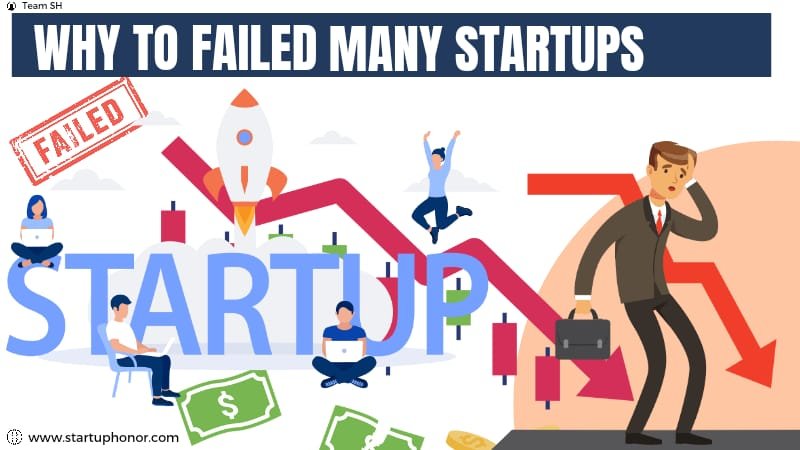
Numerous obstacles and traps frequently befall failed startups. Entrepreneurs can gain important insights by comprehending these causes. Here are a few typical causes of startup failure:
1. Lack of Market Need
A – Problem-Solution Fit: A lot of startups develop answers for issues that either don’t exist or aren’t big enough. The firm has little chance of success if there is no market for the good or service.
B – Market Research: A lack of adequate market research can result in an incorrect understanding of the wants and needs of the target audience.
2. Inadequate Funding
A – Cash Flow Problems: A lack of cash is a common reason why businesses fail. Startups sometimes overestimate their financial requirements or handle their money poorly.
B – Insufficient Financial Planning: Handling money poorly and not creating a budget can quickly drain resources.
3. Inadequate Management Team
A- Insufficient Experience:- An inexperienced team may find it difficult to carry out the business plan as intended.
B – Leadership Issues:- A startup can be destroyed by poor leadership or disputes among the management group.
4. Intense Competition
A – industry Saturation:- It might be challenging for a company to acquire momentum when it enters a saturated industry with well-established competitors.
B – Competitive edge:- You risk losing out to competitors who are in a better position if you don’t create a distinctive value proposition or competitive edge.
5. Cost and Pricing Concerns
A – Pricing Strategy:- If prices are too high (which lowers sales) or too low (which erodes margins), it may turn away customers.
B – Cost Management:- Business operations that are not sustainable may result from an inability to control costs.
6. Product Issues
A – Low Quality:- A product may not draw in or keep customers if it is of poor quality or doesn’t live up to client expectations.
B – Development Challenges: – A company may not be able to launch successfully if there are delays or problems with the product development process.
7. Ineffective Marketing
A – Client Acquisition:- Inadequate sales may result from ineffective marketing and customer acquisition.
B – Branding:- Poor message and branding can lead to low customer engagement and exposure.
8. Scaling Problems
A – Premature Scaling: Growing too rapidly without a strong base might result in financial hardship and operational inefficiency.
B – Operational Difficulties: Startups frequently lack the strong structures and procedures needed to manage development.
9. Outside Elements
A – Economic Conditions:- A startup’s viability can be seriously impacted by economic downturns or poor market conditions.
B – Regulatory Challenges:- It can be expensive and difficult to navigate legal and regulatory frameworks.
10. Misaligned Vision
A – Strategic Mistakes:- Strategic errors can arise from a mismatch between the founders’ vision and the realities of the market.
B – Adaptability:- A startup may become obsolete if it is unable to change course or adjust to shifting market conditions.
Through awareness of these typical traps, business owners can proactively reduce risks and improve their chances of success. To effectively navigate the hurdles of developing a startup, one must possess effective planning, market research skills, financial management expertise, and adaptability.









